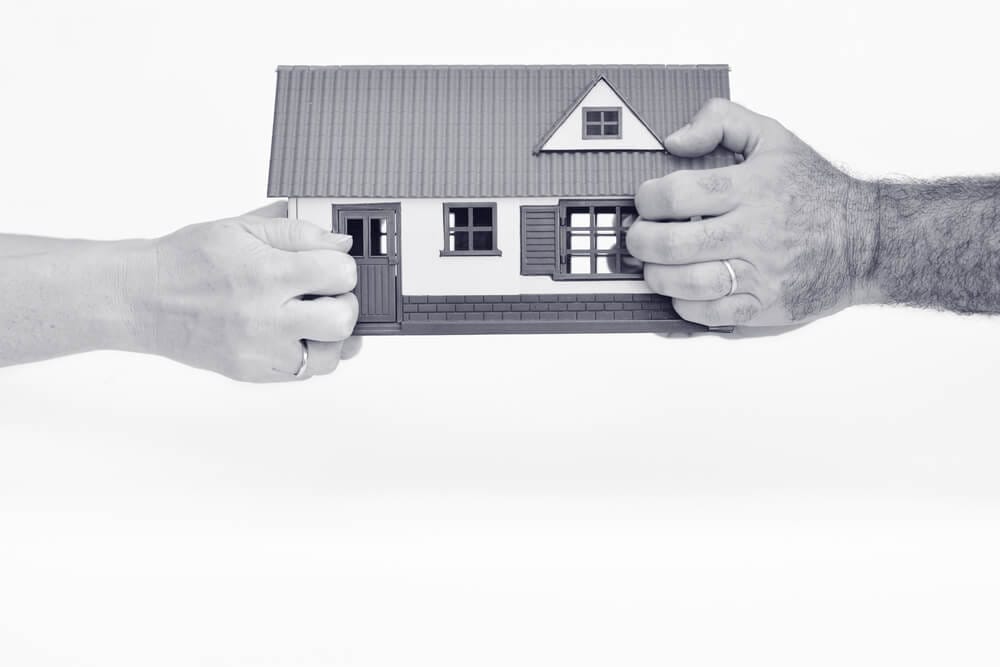Just like a lender never issues a mortgage with the full intent to later foreclose, couples don’t get married with the intent to later file for divorce. Okay, maybe there are times when one of the parties has an ulterior motive, but in general a marriage is a happy occasion and includes the traditional vow of “till death do us part.” Yet unfortunately we know all too well that divorces do happen, and regardless of the reason and when that occurs, the issue of property and assets comes up. Who gets what, when and how much? The final word lies in the divorce decree, signed by all parties including the judge overseeing the divorce proceedings.
New Home Loan During A Divorce
Let’s say that a couple is going to get married. Here in California whatever property that is owned by an individual prior to getting married does not give up any ownership rights when the couple ties the not. If one person owns a car before a marriage full ownership remains with that individual and any rights to that car does not transfer to the newly anointed spouse. The same applies to real estate. If someone owns a condo then later marries, ownership remains 100% with the original owner.
If however a married couple buys a home after marriage both spouses own that property equally. But later, should that marriage “go south” then property ownership must be enumerated in the final divorce decree and there are a few things that can occur.

The Split
When a home is purchased jointly, the soon-to-be-ex couple must decide how to dispose of the property, if at all. The simplest way to dispense of the home is to sell it outright with the owners splitting equally the share of the net proceeds.
Or, the couple could decide to give one party a greater share than the other. As long as it is written in the final divorce decree. Whatever property or assets acquired during the marriage must be disposed of as per the decree.
For example, the divorce decree could state that one party will occupy the property and the other to find another place to stay. The decree will also lay out who will be responsible for the mortgage payment. It can be the person who occupies the home or it can be paid by the person not occupying the home. Again, whatever is in the decree rules. Not outside agreements.
It’s important to note here that two people being on a mortgage and two people listed as owners on title are two different things, legally speaking. One of the owners can issue what is called a “quit claim” and relinquish all legal interest in the property to the other individual. However, getting that person off the mortgage is something different. The way to get a person off of a mortgage is to have the remaining party refinance the loan taking ownership as an individual.

Buying While Divorcing
It’s not a common occurrence but there are times when someone that is going through a divorce that is not yet final wants to buy and finance another home to live in while the divorce makes its way through the court. It takes a bit of legwork to accomplish this but it is in fact possible working with a lender who knows how to navigate such waters.
If a divorce decree is not yet final due to delays in the court filing, we can accept an attorney opinion letter – on the attorney’s letterhead with a live signature- a statement showing the details in the divorce decree have not and will not change and the delay is due to filing issues and not due to more litigation or disagreements on the disbursement of property. This is critically important and a necessary step to getting someone qualified for a new loan while still be obligated on the current mortgage.
Most lenders will stand pat and not issue a loan approval until a copy of the signed and recorded divorce decree is presented to the mortgage company. Depending upon how long the recording will take place, this could mean a soon-to-be-divorced individual couldn’t buy a particular property due to the legal footwork needed to make the divorce an official one. As long as the attorneys for both spouses can provide a written statement on letterhead that no changes to the decree will be made and both have agreed on the final terms, either individual can obtain a mortgage loan to buy another home without having to wait for the figurative final gavel to fall.
It’s important to note here that you should discuss this possibility with your own counsel ahead of time so your decree can be prepared properly and both parties have time to review the proposed issues. As a mortgage lender, we don’t provide you with legal advice, but we do provide you with how we approach financing a home for someone while their divorce is not yet fully finalized and recorded at the county courthouse.


